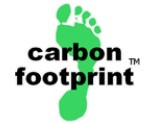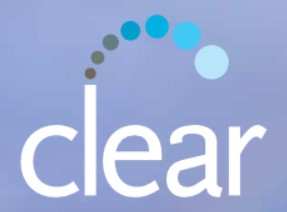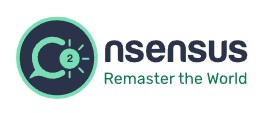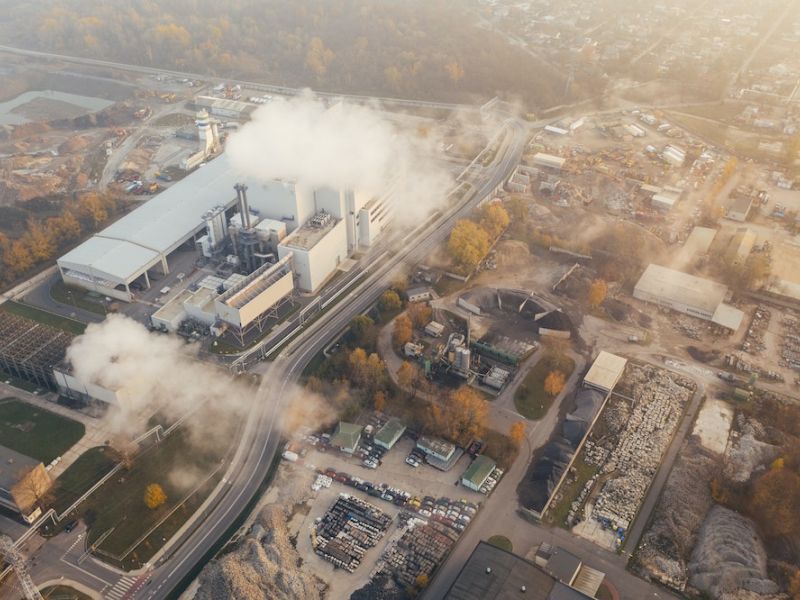
Best Carbon Offsetting Schemes that you should consider
If you’re a UK-based business looking to reduce your carbon footprint, you’ve likely come across the concept of carbon offsetting. After measuring your carbon footprint and identifying ways to reduce your carbon usage, carbon offsetting schemes can aid in achieving your carbon reduction targets and attaining net-zero status.
With so many carbon offsetting projects available, it can be overwhelming to determine which ones are legitimate and effective. In a previous blog post, we covered the basics of carbon offsetting for businesses in the UK. Now, we’re going to delve deeper and review various carbon offsetting projects to help you make informed decisions about which ones align with your sustainability goals.
Four Types of Carbon Offsetting Projects
Before we begin, the majority of schemes will fall into the following four main types of carbon offset projects:
Forestry and Conservation schemes
Offsetting schemes centred around reforestation and conservation have gained significant traction in recent years. These initiatives typically generate carbon credits by either capturing carbon through planting trees or preventing the release of carbon by protecting existing ones. Such projects are being implemented worldwide, ranging from forest growth initiatives in the UK to mangrove reforestation efforts in Madagascar, and even rainforest “re-wilding” projects in Brazil.
Although not the most economical offset choice, forestry projects are frequently preferred for their additional benefits beyond the carbon credits they provide. Companies offsetting their carbon emissions for corporate social responsibility (CSR) reasons attach importance to protecting ecosystems, wildlife, and social heritage.
Forestry offsetting presents some ambiguity. Previously, it was challenging to determine the precise amount of carbon reduction achieved by forestry projects. However, thanks to emerging technologies, sustainable reforestation techniques, and improved calculation methods, this has greatly improved.
Renewable Energy Schemes
Companies can support the construction or maintenance of solar, wind, or hydro sites around the world through renewable energy offsets. Such investments not only increase the amount of renewable energy in the power grid but also create employment opportunities, reduce dependence on fossil fuels, and contribute to the overall expansion of the renewable energy sector.
Community Projects
Introducing energy-efficient methods or technology to underprivileged communities worldwide is a common goal of community projects. The benefits of these projects extend beyond carbon credits and can make entire regions more sustainable while empowering and providing independence to communities, potentially lifting them out of poverty. Therefore, what were once purely philanthropic projects can now offer organizations direct benefits, such as carbon credits.
Waste to Energy
Converting waste to energy typically involves capturing methane and using it to generate electricity. This can involve capturing gas from landfills or, in smaller rural areas, utilizing human or agricultural waste. By doing so, waste to energy projects can have a similar positive impact on communities as initiatives focused on clean water or efficient stoves.
How do I know what Carbon Offset Schemes are most effective?
Out of the four offsetting types, it’s important when selecting a scheme to consider those which are likely to be the most effective. In terms of offsetting efficiency, we’ve broken them down below with most effective to worse:
- Carbon sequestration:
Carbon sequestration refers to the practice of long-term carbon storage, this is primarily achieved through forestry practices. However, this approach may not be an ideal long-term solution to emissions reduction, as there is no assurance of permanence. - Energy efficiency improvements:
Energy efficiency improvements involve the development of products or systems that require less energy to carry out the same functions as their conventional counterparts. It is crucial to note that if these products are replaced too frequently, the carbon dioxide emissions released during their production may surpass the amount of carbon dioxide saved by using the new products. - Renewable energy:
Renewable energy initiatives involve investing in the establishment and upkeep of renewable energy facilities worldwide. However, it is worth noting that these projects may not necessarily result in additionality as renewables are increasingly contributing to our energy mix, with or without the support of offsets. - Direct CO2 removal:
Direct CO2 removal involves the use of machines to extract carbon dioxide directly from the atmosphere. This approach is considered highly effective in reducing emissions over both short and long-term periods since it offers additionality and permanence.
Carbon Offsetting Schemes in the UK
Although there are lots of different schemes available with projects that make investments and deliverable actions worldwide, there are only three schemes that focus on delivering the carbon offset schemes in the UK. Our research didn’t include companies or charities that procure offsets from third-party vendors, or where carbon offsetting is subsidiary to other initiatives.
Carbon Footprint Ltd
About: Carbon Footprint Ltd offers tree planting, solar PV installations for schools, and biodiversity and conservation projects.
Location: Basingstoke, Hampshire
Founded: 2002
Legal Status: For-profit limited company
Certification: Projects can be combined with certified schemes in developing countries, and Carbon Footprint holds ISO certification.
Donations: Not applicable
Price per tonne of carbon offset: Not disclosed.

About: Forest Carbon is a prominent participant in woodland formation and peatland regeneration for carbon capture and offsetting initiatives within the UK.
Location: Durham
Founded: 2006
Legal Status: For-profit
Certification: Woodland Carbon Code and Peatland Code
Individual subscriptions: Starting at £8.50 per month.
Price per tonne of carbon offset: Not disclosed.
Updated June 2022: the Forest Carbon no longer offer offsetting schemes in the UK.
My Carbon Plan
About: My Carbon Plan is the sole not-for-profit organization featured on the list. Their objective is to plant 100,000 trees annually in the UK and establish new woodland areas.
Location: Harpenden, Hertfordshire
Founded: 2020 Legal Status: Limited by guarantee, not-for-profit
Certification: Woodland Carbon Code
Donations: Individuals typically contribute £5 per month, while companies and councils can access specialized programs.
Price per tonne of carbon offset: Typically priced at £6.50, although the cost may vary depending on the UK location.
Compulsory and Voluntary Offsetting Schemes
As of 2020, carbon offset schemes in the UK are only available for voluntary offsetting. After the Kyoto treaty in 1997, certain industries in some countries were obligated to reduce their greenhouse gas (GHG) emissions, including carbon emissions, and then offset their remaining emissions to achieve net-zero, which resulted in the creation of Certified Emission Reductions (CER). Companies could then buy carbon credits from these carbon offset projects, known as Clean Development Mechanism (CDM) projects.
Carbon credits for compulsory emission reduction (CER) are only accessible in developing countries, following United Nations protocols. While there is some anticipation that eligible schemes may become allowed in developed countries, including the UK, following the Paris Agreement in 2018, as of 2020, this has not yet happened.
Certified Carbon Offsetting schemes in UK
As of 2021, the Woodland Carbon Code and the Peatland Code are the only two offsets schemes accredited by the UK Environmental Agency.
More offset schemes may be added in the future and guidance from the agency can be used to identify the best carbon credits. However, there are international schemes available that have been verified by Verra, Plan Vivo, or Gold Standard. These standardisation bodies offer certification and validation for other CERs and CDMs.
Carbon Offsetting Schemes
There are many additional carbon offsetting schemes available, and we’ve compiled some of our favourites here:
 Clear
Clear
Clear offers carbon offsets for individuals and businesses. It stands out from other programmes because of it’s specificity in breaking down offset areas. Its carbon calculators calculate the carbon footprint of specific activities, such as commuting, home energy, and internet use.
Clear’s commute calculator allows you to input details about your daily commute and generates the cost to offset these emissions. Businesses could encourage their employees to do this and then cover those costs on their behalf.
The carbon offsets generated by Clear are directed towards supporting projects that are certified with the Quality Assurance Standard (QAS), such as enhancing cookstove efficiency, constructing hydroelectric and wastewater treatment plants, and promoting clean energy sources.
 3Degrees
3Degrees
3Degrees, a Certified B Corporation, offers various sustainability services for businesses including energy and climate consulting and purchasing and selling carbon offsets. Additionally, 3Degrees provides Green-e® Climate certified carbon offsets that earn Leadership in Energy and Environmental Design (LEED) certification points. Carbon offset projects supported by 3Degrees focus on carbon reduction and removal such as sustainable forestry, livestock manure management, landfill gas, and industrial processes. All projects must meet rigorous criteria and are third-party verified by Climate Action Reserve, American Carbon Registry, Gold Standard, or Verified Carbon Standard. While carbon offsets cannot be purchased directly through the website, businesses can request a personalized quote based on their goals and budget. 3Degrees is a great option for businesses interested in large offsets and other sustainability services.
 Carbonfund
Carbonfund
Carbonfund is an organization that offers a variety of carbon offset projects and services for businesses. There is a large amount of flexibility as they have offsetting schemes that are tailored to fit different business sizes and needs. In addition to multiple projects they also provide carbon footprint and carbon credit calculators. Businesses can gain also certification for Carbonfree products and use these visual certificates on their websites or listings on market places like Amazon and Wayside to help differentiate themselves from competitors. In addition, Carbonfund offers services such as carbon-free shipping and carbon-free events to help businesses reduce their carbon emissions on these activities. All projects are third-party verified with the key verification agencies mentioned in this blog.
 Make it Wild
Make it Wild
Make it Wild is a tree planting carbon offsetting scheme in the UK and enables businesses to offset carbon in multiples of 10 tonnes of carbon dioxide. They have a carbon calculator on the website to workout how much you may want to invest.
After purchasing carbon offsetting trees, they will either assign newly planted trees to you or plant new trees on your behalf depending on availability and time of year. You will receive a certificate showing the amount of carbon dioxide you have offset, the location of the trees on a map, and an annotated aerial photograph of the trees planted for you. Additionally, they will provide you with a badge that you can display to customers and employees to showcase your environmental efforts. We will also protect and maintain your trees to ensure they reach maturity and offset all of your carbon emissions within approximately 40 years.
 NativeEnergy
NativeEnergy
NativeEnergy is a public benefit corporation that provides carbon offset programs with user-friendly carbon calculators, verified carbon offset projects, and the option to purchase offsets on a monthly, quarterly, or annual basis. If multiple projects are available, customers can choose the one they prefer, otherwise they support the most current project. Projects typically focus on emissions reduction and reforestation, and customers can see which specific project their money will support.
NativeEnergy evaluates offset projects based on extensive criteria and each project is certified by a third-party organization such as Gold Standard, Verified Carbon Standard, Climate Action Reserve, American Carbon Registry, Plan Vivo, Climate, and Community & Biodiversity Alliance.
 Sustainable Travel International
Sustainable Travel International
Some carbon offset programmes are niche specific and Sustainable Travel International (STI) focuses on offsetting business travel emissions.
To offset the carbon footprint of a flight, simply enter information about the number of people travelling, distance travelled, and whether flying economy or premium. The calculator then generates the total carbon footprint of the flight and displays the cost to offset that footprint.
STI only supports carbon offset projects certified by third-party organizations such as Gold Standard, Verified Carbon Standard, and Plan Vivo. Since 2007, STI has helped individuals and businesses offset over 380,000 metric tons of CO2 emissions.
 TerraPass
TerraPass
Another niche offsetting specialist is TerraPass who provide an easy-to-use carbon calculator specifically designed to help large event planners understand and offset their event’s carbon footprint. By inputting details such as travel to the event, number of attendees, hotel accommodations, venue, and meals, the calculator generates a carbon dashboard showing the carbon footprint of the event in pounds or metric tons, along with the cost of the offset (starting at about $8 per 1,000 pounds of carbon offset).
TerraPass also sends a full report of the event’s carbon footprint via email, and all carbon offset funds go toward certified projects such as the Gold Standard, Verified Carbon Standard, the Climate Action Reserve, or the American Carbon Registry. Additionally, TerraPass offers renewable energy credits to support clean energy and water restoration certificates to help restore freshwater ecosystems.
 Carbon Checkout
Carbon Checkout
Carbon Checkout is a software app plug-in designed for e-commerce stores to integrate and offer customers the opportunity to invest in carbon offset while they shop. This is a great option for businesses that want to demonstrate their commitment to the environment while also enhancing their brand. All contributions made through Carbon Checkout are pooled to fund renewable energy projects aimed at reducing carbon emissions. All investments made through Carbon Checkout support projects that are third-party validated and independently audited and tracked.
This app is great for encouraging an e-commerce customer to offset their order and promotes more carbon offsetting, however a business shouldn’t solely rely on this as the customer is incurring the cost of the offsetting and a business should still look to offset their own emissions of their business operations. Carbon Checkout have foreseen this potential criticism and offer a match partner option where the business also matches all contributions made by its customers.
 Ecologi
Ecologi
Ecologi provides verified carbon offset projects, which include planting trees as a bonus. This is because it takes several years for trees to mature and sequester carbon effectively. There offerings seem to only focus on offsetting all employees travel, while also planting trees for each employee. This could leave emissions of your business still requiring to be offset but there is a carbon calculator and advise to reduce consumption.
Ecologi supports various projects, such as forest restoration, renewable energy, clean cookstoves, and clean drinking water. They use the Verified Carbon Standard and the Gold Standard to ensure transparency and quality in offset projects. Ecologi partners with tree planting organizations like Eden Reforestation Projects, One Tree Planted, and Trees for the Future. Although they cater to businesses of all sizes, their website appears to focus more on small and medium-sized businesses with 1-100 employees. For larger businesses, Ecologi encourages direct contact.
 Climeworks
Climeworks
Climeworks specializes in the removal of carbon dioxide and utilizes their specialized machines to extract CO2 from the air. This CO2 is then mixed with water and injected deep underground where it is naturally mineralized and converted into stone. Through their process, 90 out of every 100 tons of CO2 are permanently removed, with up to 10 tons potentially re-emitted by their machines. Climeworks offers permanent, measurable, natural, and efficient carbon offsets. They work with many businesses and simply ask you to make contact to calculate the costs based on your emissions.
 Climate Vault
Climate Vault
Climate Vault has developed a unique strategy to combat CO2 emissions by purchasing carbon pollution permits that are issued to businesses on the cap-and-trade compliance market, and storing them in their vault to prevent emitters from using them. This method reduces the total amount of CO2 that emitters are allowed to emit, as the number of carbon permits is limited. Each permit purchased by Climate Vault represents 1 metric ton (1,000kg) of CO2 that is vaulted, providing a clear and verifiable approach to carbon reduction. Businesses looking to offset their own emissions know that their investments into Climate Vault is helping them fund the purchase of the carbon pollution permits and is easily measurable when they purchase a permit that is worth the CO2 ton.
 Watershed
Watershed
Watershed was established with the objective of assisting businesses in implementing effective climate programs to reduce their carbon footprint, thereby accelerating global decarbonization. In order to help businesses reduce Scope 3 carbon emissions throughout their supply chains, Watershed launched Watershed Supply Chain (WSC), which assesses, prioritizes, and interacts with suppliers and vendors to streamline the process of reducing emissions. Additionally, businesses can invest in carbon removal carbon offsets like kelp farming, bio-oil sequestration, ocean mineralization, biochar, and direct air capture. Watershed’s carbon reporting is designed to meet the Greenhouse Gas Protocol, conforms to international and country-specific standards, and is audited by third parties.
 Cool Effect
Cool Effect
Cool Effect offers a Business Carbon Offset Calculator, which can offset your company’s carbon footprint in terms of power consumption. The calculator uses three different methods for calculating your offset, which include monthly utility usage, office square footage, or monthly utility bill. By purchasing carbon offsets, you’ll be supporting projects that involve avoiding nature loss (forestry, tree planting, grasslands), methane capture, and clean cookstoves. These projects are located in the US, India, China, Myanmar, Indonesia, Honduras, Kenya, and Uganda. Cool Effect’s projects are strictly verified, 100% additional, and align with the UN’s Sustainable Development Goals.
 Reforest’Action
Reforest’Action
Reforest’Action, a French crowdplanting company, was founded with a mission to preserve, restore, and create forests worldwide. With over 20 million trees financed in 40 countries to date, they strive to provide environmental, social, and economic benefits for generations to come.
Offsetting with Reforest’Action supports the development and restoration of carbon sinks for the future. They have active reforestation projects across six continents, including Europe, North America, South America, Africa, Asia, and Oceania. Companies can choose from four business solutions: financing forests, contributing to global carbon neutrality, creating customized agroforestry projects, or planting an urban forest.
 Co2nsensus
Co2nsensus
Co2nsensus is a climate-tech company that specializes in helping individuals and businesses achieve carbon neutrality. They offer various tools such as carbon footprint calculators, carbon management software, carbon offsets for individuals, and a carbon-neutral e-delivery system for e-commerce.
Co2nsensus provides two different business plans: a basic plan with monthly subscription-based payments calculated based on the number of employees, and an advanced plan with a one-time payment calculated based on annual consumption. Purchases made through Co2nsensus support the Weyerhaeuser’s Forest Plantation carbon offset project located in Montevideo, Uruguay.
The Weyerhaeuser’s Forest Plantation project is certified by the Verified Carbon Standard and verified by the Rainforest Alliance.
 GoClimate
GoClimate
GoClimate provides carbon footprint calculation, reduction support, and a subscription service for contributing to certified climate projects for individuals and businesses. They offer three options for businesses to offset their carbon footprint: calculate your own footprint, receive assistance in evaluating and understanding where to make the most impact, or create your own climate plan. GoClimate currently supports a water filter project in Indonesia, a geothermal energy project in Sumatra, and a landfill gas recovery project in Colombia. These Climate Care projects are verified by third-party organization, the Gold Standard. The business calculator is currently only available for businesses in Sweden or the United Kingdom, but GoClimate can be contacted for businesses located elsewhere.
 Paying.Green
Paying.Green
Paying.Green disrupts the traditional carbon offsetting industry by raising funds to purchase and retire selected carbon offset credits at wholesale prices. They have created transparent governance structures, wholesale pricing, and are a tax-exempt, not-for-profit organization. Their goal is to revolutionize the industry with their innovative approach to carbon offsetting.
Businesses can choose from two options offered by Paying.Green: Carbon 360™ or Climate Smart Payments, both of which are aimed at helping them achieve their climate goals. Carbon 360™ enables businesses to decarbonize and transition to Carbon Neutrality or Net Zero status, while Climate Smart Payments allows businesses to partner with Paying.Green, which then encourages their customers to purchase and retire carbon credits. The money raised through these subscriptions is used to invest in offset projects that include biogas/biomass energy, solar/wind/hydro-power, reforestation, waste handling disposal, and nitrogen oxide abatement projects.
Paying.Green only procure verified carbon credits under the United Nations Framework Convention on Climate Change and avoid any speculative or trading activities. To ensure that there is no double counting, they retire these credits simultaneously as they are acquired. Additionally, Paying.Green gives utmost priority to factors like additionality (financial and environmental), permanence, validation, and verification.
How Can PES Help Reduce Your Carbon Footprint?
Before considering carbon offsets, it is crucial to take steps to minimize your carbon footprint as much as possible. Carbon credits should not be solely relied upon to give an organization a sense of sustainability or a clean conscience for consumers and clients. When used in conjunction with mitigation efforts, carbon offsetting is a useful tool that can establish a truly sustainable and resilient foundation.
At PES, we provide carbon management services to assist our clients in sustainably reducing their carbon footprint. Our team of experts can offer guidance on energy efficiency, clean energy solutions, carbon emissions monitoring, and carbon credits.
For more information about our services, please contact us at PES.


 Clear
Clear 3Degrees
3Degrees Carbonfund
Carbonfund Make it Wild
Make it Wild NativeEnergy
NativeEnergy Sustainable Travel International
Sustainable Travel International TerraPass
TerraPass Carbon Checkout
Carbon Checkout Ecologi
Ecologi Climeworks
Climeworks Climate Vault
Climate Vault Watershed
Watershed Cool Effect
Cool Effect Reforest’Action
Reforest’Action Co2nsensus
Co2nsensus GoClimate
GoClimate Paying.Green
Paying.Green


